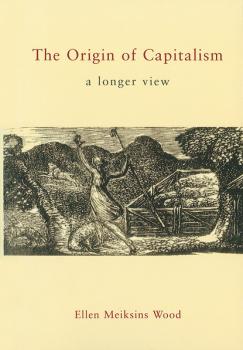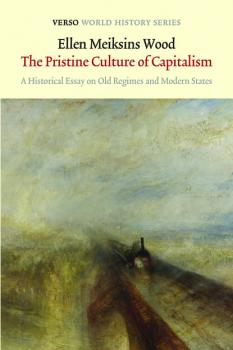ТОП просматриваемых книг сайта:















Ellen Meiksins Wood
Список книг автора Ellen Meiksins WoodАннотация
Historian and political thinker Ellen Meiksins Wood argues that theories of “postmodern” fragmentation, “difference,” and con-tingency can barely accommodate the idea of capitalism, let alone subject it to critique. In this book she sets out to renew the critical program of historical materialism by redefining its basic concepts and its theory of history in original and imaginative ways, using them to identify the specificity of capitalism as a system of social relations and political power. She goes on to explore the concept of democracy in both the ancient and modern world, examining its relation to capitalism, and raising questions about how democracy might go beyond the limits imposed on it.
Аннотация
Capitalism is not a natural and inevitable consequence of human nature, nor is it simply an extension of age-old practices of trade and commerce. In this original and provocative book Ellen Meiksins Wood reminds us that capitalism is not a natural and inevitable consequence of human nature, nor is it simply an extension of age-old practices of trade and commerce. Rather, it is a late and localized product of very specific historical conditions, which required great transformations in social relations and in the human interaction with nature. This new edition is substantially revised and expanded, with extensive new material on imperialism, anti-Eurocentric history, capitalism and the nation-state, and the differences between capitalism and non-capitalist commerce. The author traces links between the origin of capitalism and contemporary conditions such as 'globalization', ecological degradation, and the current agricultural crisis.
Аннотация
The controversial thesis at the center of this study is that, despite the importance of slavery in Athenian society, the most distinctive characteristic of Athenian democracy was the unprecedented prominence it gave to free labor. Wood argues that the emergence of the peasant as citizen, juridically and politically independent, accounts for much that is remarkable in Athenian political institutions and culture.
Аннотация
In this lively and wide-ranging book, Ellen Meiksins Wood argues that what is supposed to have epitomized bourgeois modernity, especially the emergence of a “modern” state and political culture in Continental Europe, signaled the persistence of pre-capitalist social property relations. Conversely, the absence of a “modern” state and political discourse in England testified to the presence of a well-developed capitalism. The fundamental flaws in the British economy are not just the symptoms of arrested development but the contradictions of the capitalist system itself. Britain today, Wood maintains, is the most thoroughly capitalist culture in Europe.
Аннотация
Exploring the connections between class, ideology and politics. In this classic study, which won the Isaac Deutscher Memorial Prize, Ellen Wood provides a critical survey of influential trends in “post-Marxist” theory. Challenging their dissociation of politics from class, she elaborates her own original conception of the complex relations between class, ideology and politics. In the process, Wood explores the links between socialism and democracy and reinterprets the relationship between liberal and socialist democracy. In a new introduction, Wood discusses the relevance of The Retreat from Class in a post-Soviet world. She traces the connections between post-Marxism and current academic trends such as postmodernism and argues that a re-examination of class politics is a necessary counter to the current cynical acceptance of capitalism.





